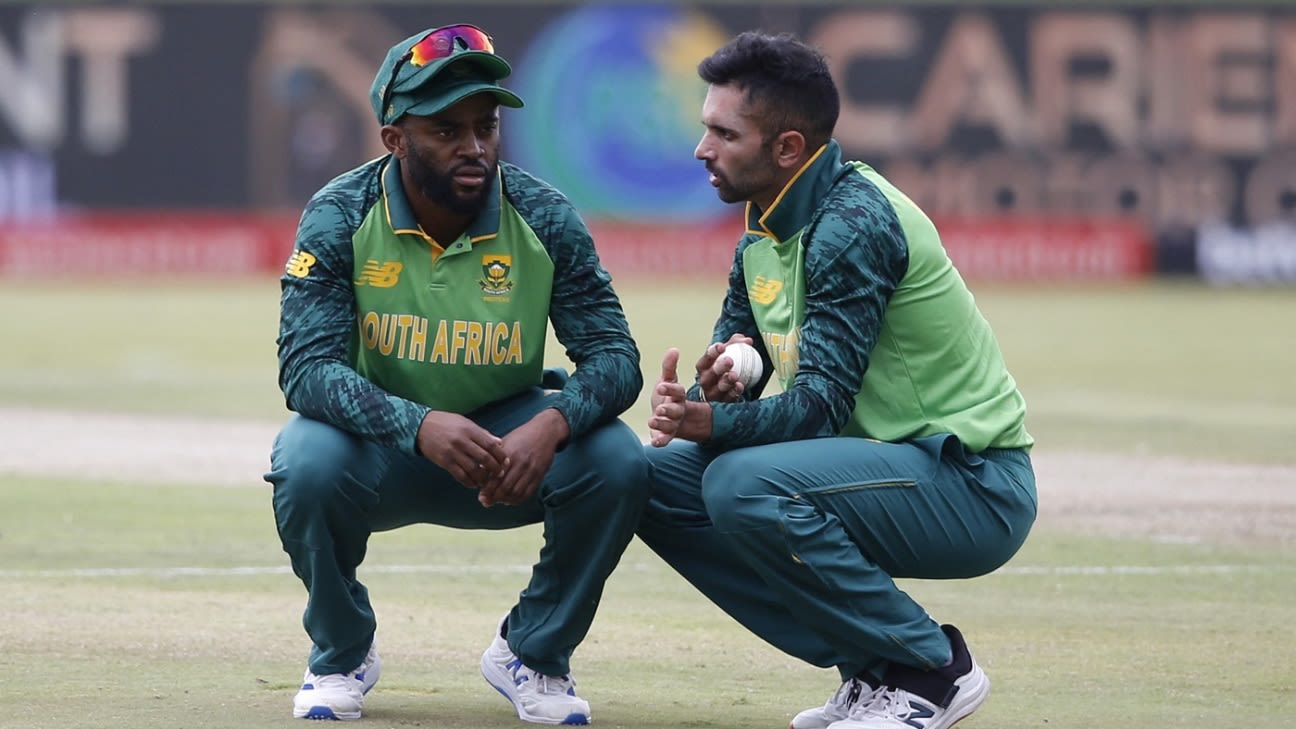Bavuma also said he was looking forward to “unpacking” with Enoch Nkwe, who resigned as assistant coach last week
“Culture is something that’s an ever growing thing. If I look at when I came into the team 2014-15, there was a certain type of team culture, displayed in the public through Protea Fire and that had a certain purpose and meaning behind it. The main custodians, the guys who had that responsibility of building that culture, unfortunately are not here – guys like Faf (du Plessis), JP (Duminy), Dale (Steyn), and AB (de Villiers). Now we have a different set of senior players who have the responsibility of building a new culture and that is still within its early stages,” Bavuma said.
“For us, it’s about the younger guys and instilling the right values and cultivating that culture. It is in that stage. It is something that we are still cultivating. Conversations are happening amongst the team – hard, hard conversations are happening amongst the team, amongst management levels, conversations that are challenging each other, all with the view of cultivating an environment that allows guys to play at their best but most importantly have that proper sense of belonging.”
They’ve only just begun their skippering duties and have been on tour – of West Indies – together and it seems there’s still a lot to learn about each other. “The other thing we need to consider is that we’ve got two captains in myself and Dean Elgar, and Dean and I give ourselves an opportunity to share ideas as to how we would like to take the team,” Bavuma said. “He has his philosophy of doing things, I have my philosophy, so in getting us to meet at some type of a halfway point, there is that balancing act. I’ve said a lot, but in terms of the culture, it’s something that we are cultivating. It’s definitely not anywhere near the end product.”
Meanwhile, Bavuma is hoping to do some fact-finding of his own and would like to meet Nkwe, under whom he played for a season on the domestic circuit, to understand his gripes. Asked how he feels about Nkwe’s expressions of concern, Bavuma admitted it has affected him.
“It does make me feel some type of way. I haven’t had an opportunity to have a formal discussion with Enoch but probably when I get back to South Africa, I’d like to sit down with him and maybe unpack it a bit,” Bavuma said. “I’d like to hear it from him. He is the subject here, at the end of the day. If there is merit (to Nkwe’s assertions), as a member of the team, it’s something I will take on board and have a discussion amongst the team.”
However, Bavuma emphasised that the team has already been doing the work to build a better culture. “In saying that, among some of the senior players in the team, and the conversations we have had, we’ve looked at ourselves and seen how best we can do things. That’s not to say the culture is an unhealthy one. Every team has areas which they can improve on and you have to have those conversations to identify those areas,” he said. “In terms of understanding it a bit more, from Enoch’s point of view, probably when I get back to South Africa and when things are toned down a bit with the schedule, I will have a conversation with him and see what comes of it. “
From a cricketing point of view, Bavuma described Nkwe’s resignation as a “big loss,” especially for him.
“For me, personally, he was a good sounding board, and a person who I used to test my ideas against,” Bavuma said. “I guess it helped that I had working experience with him from domestic level. As a player, I can only wish him well in his future endeavours and I am sure wherever he is, he will supporting and rooting for us.”
Firdose Moonda is ESPNcricinfo’s South Africa correspondent
